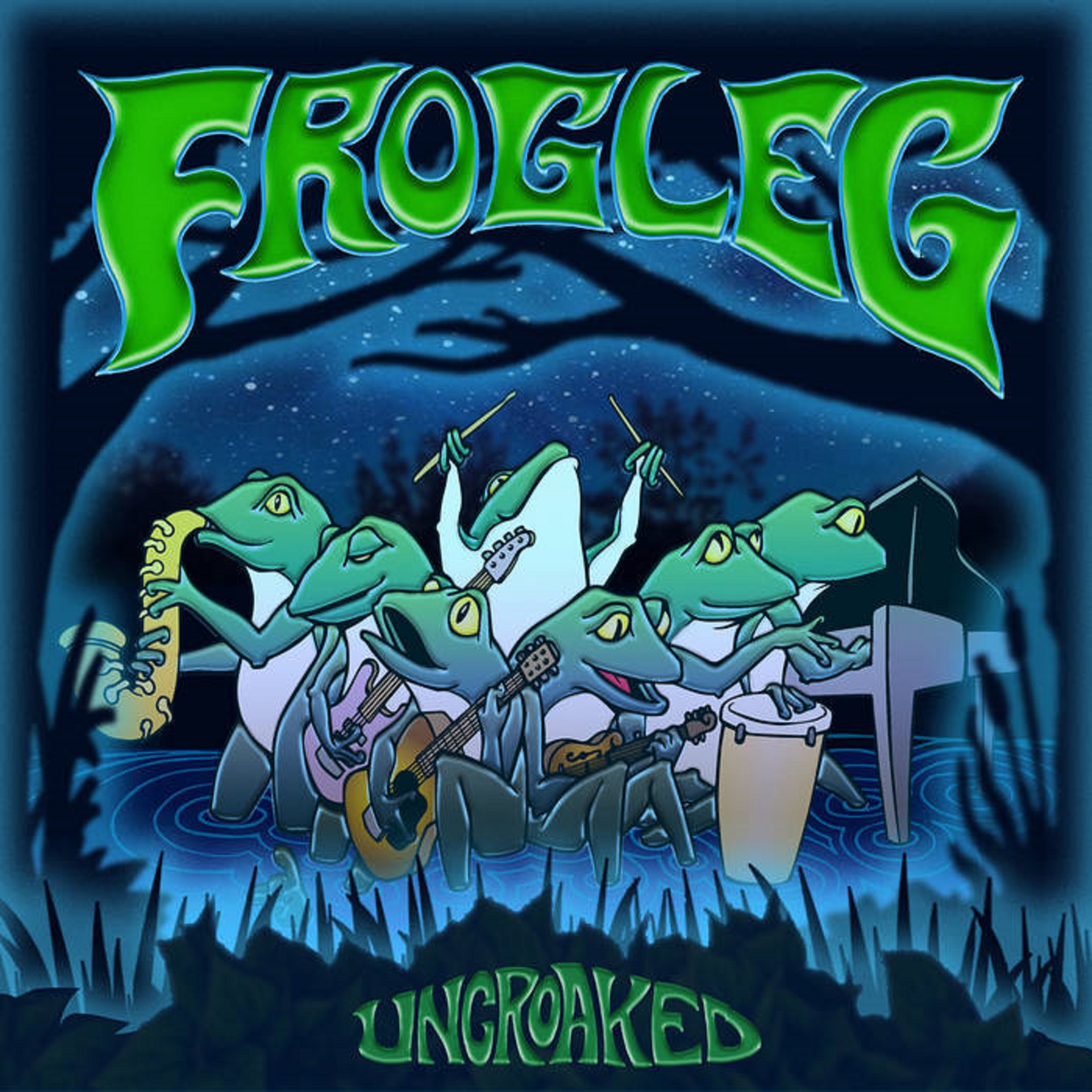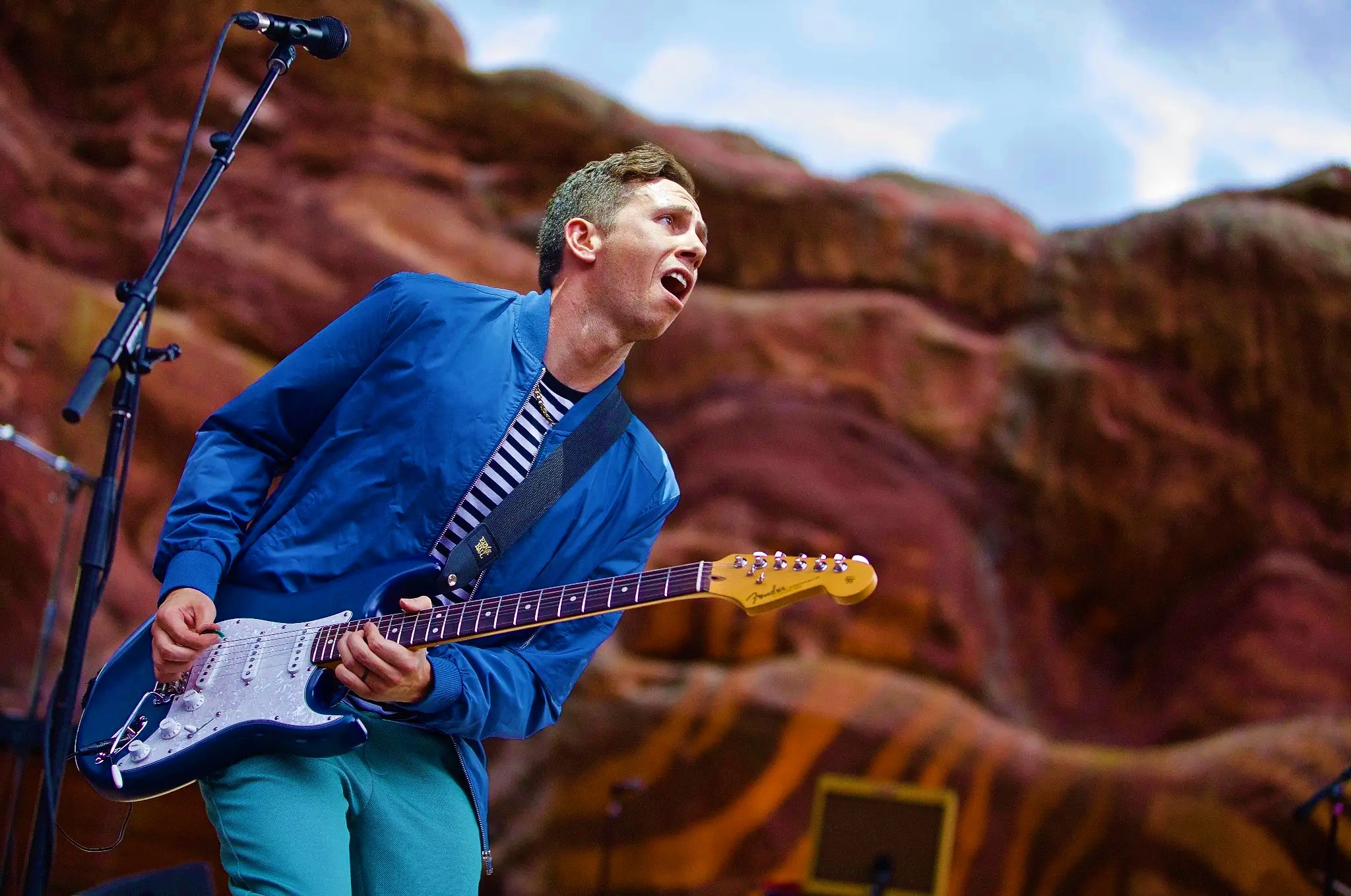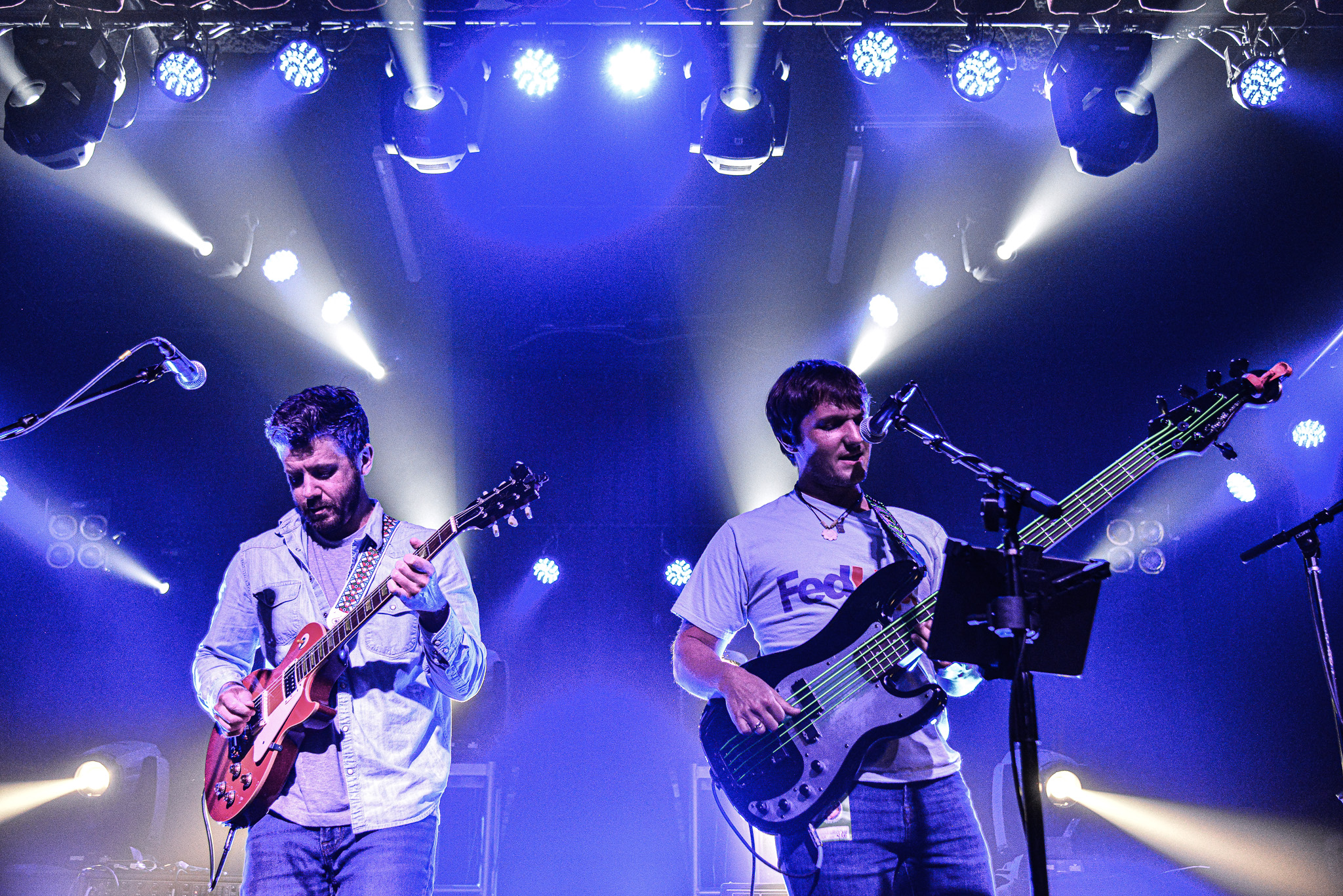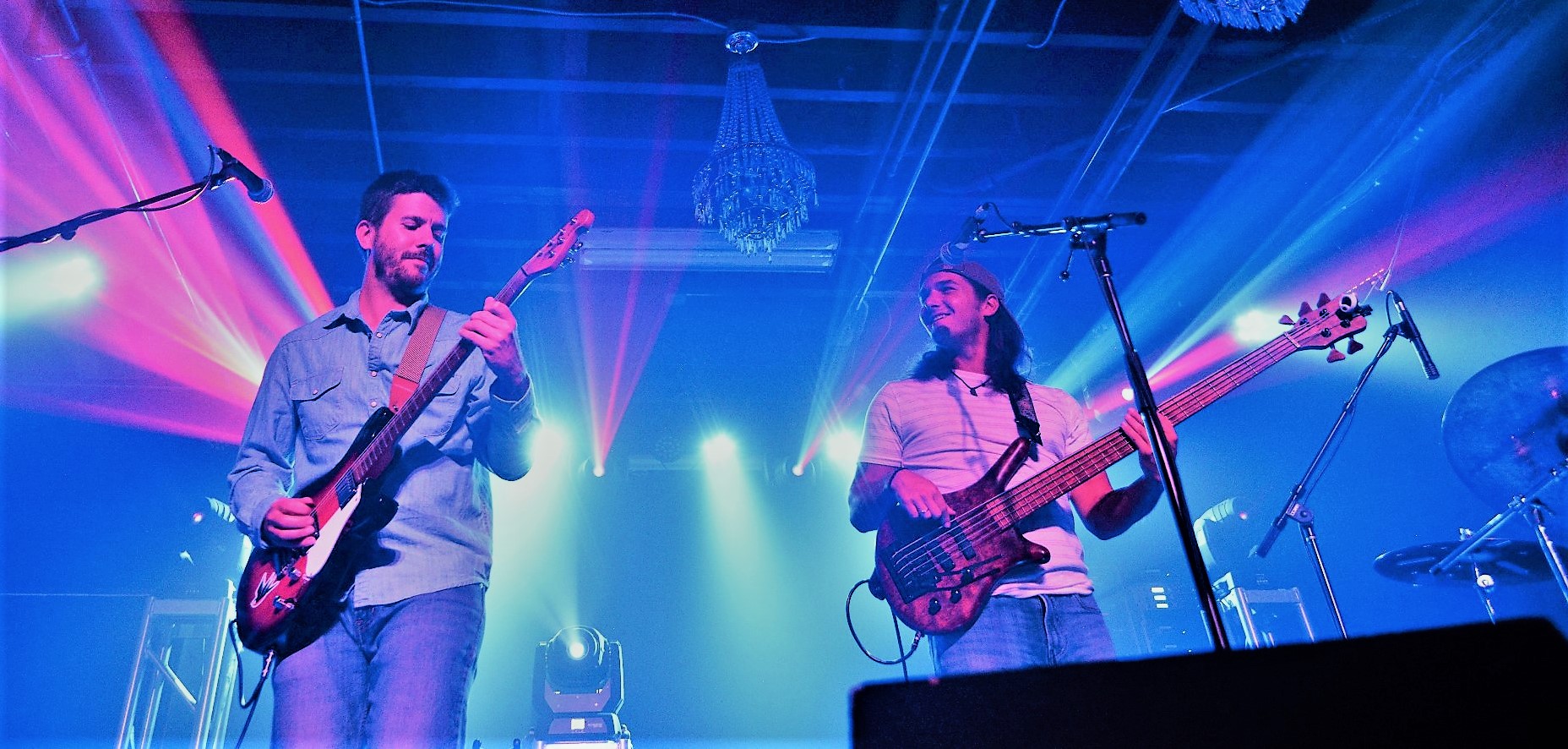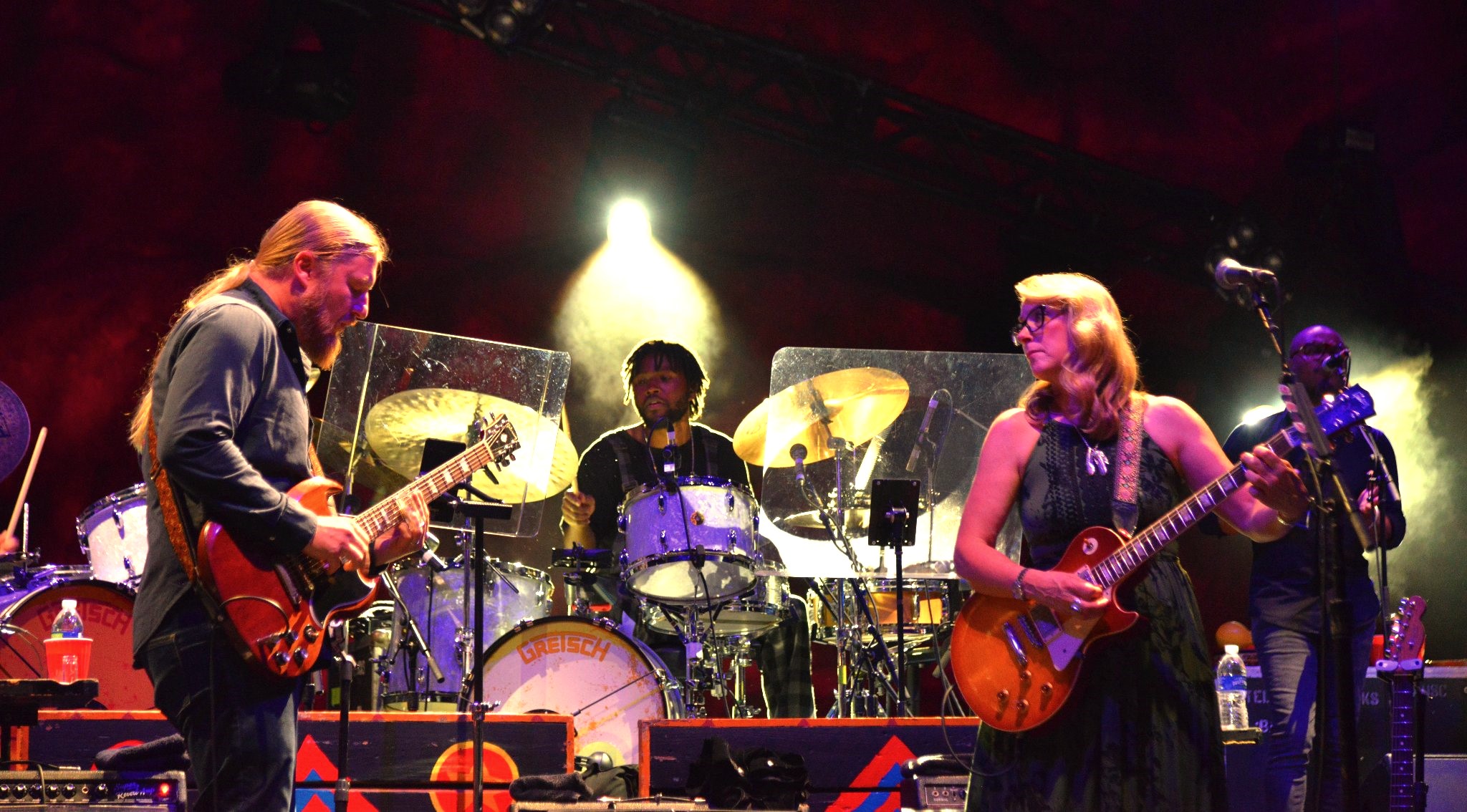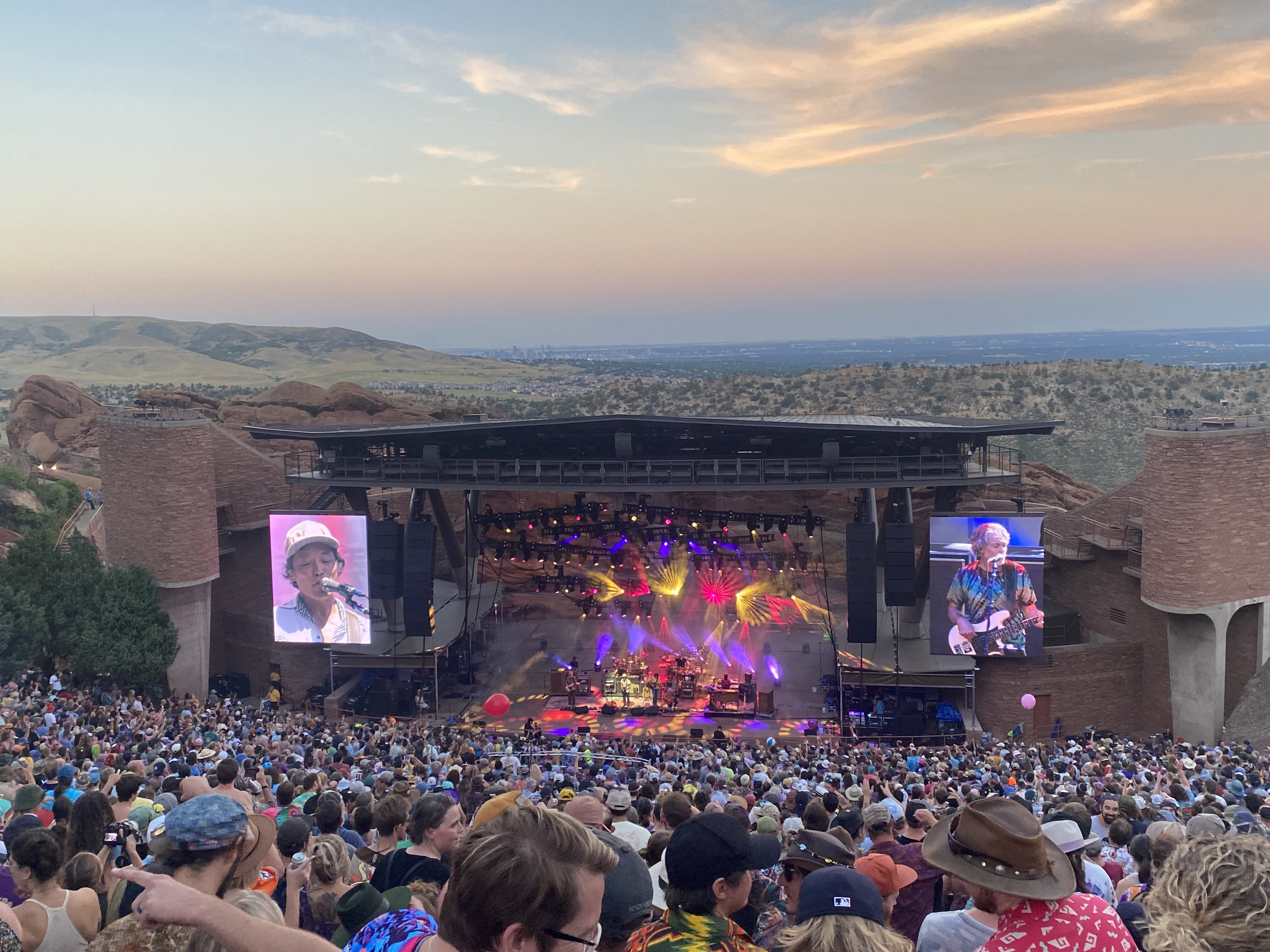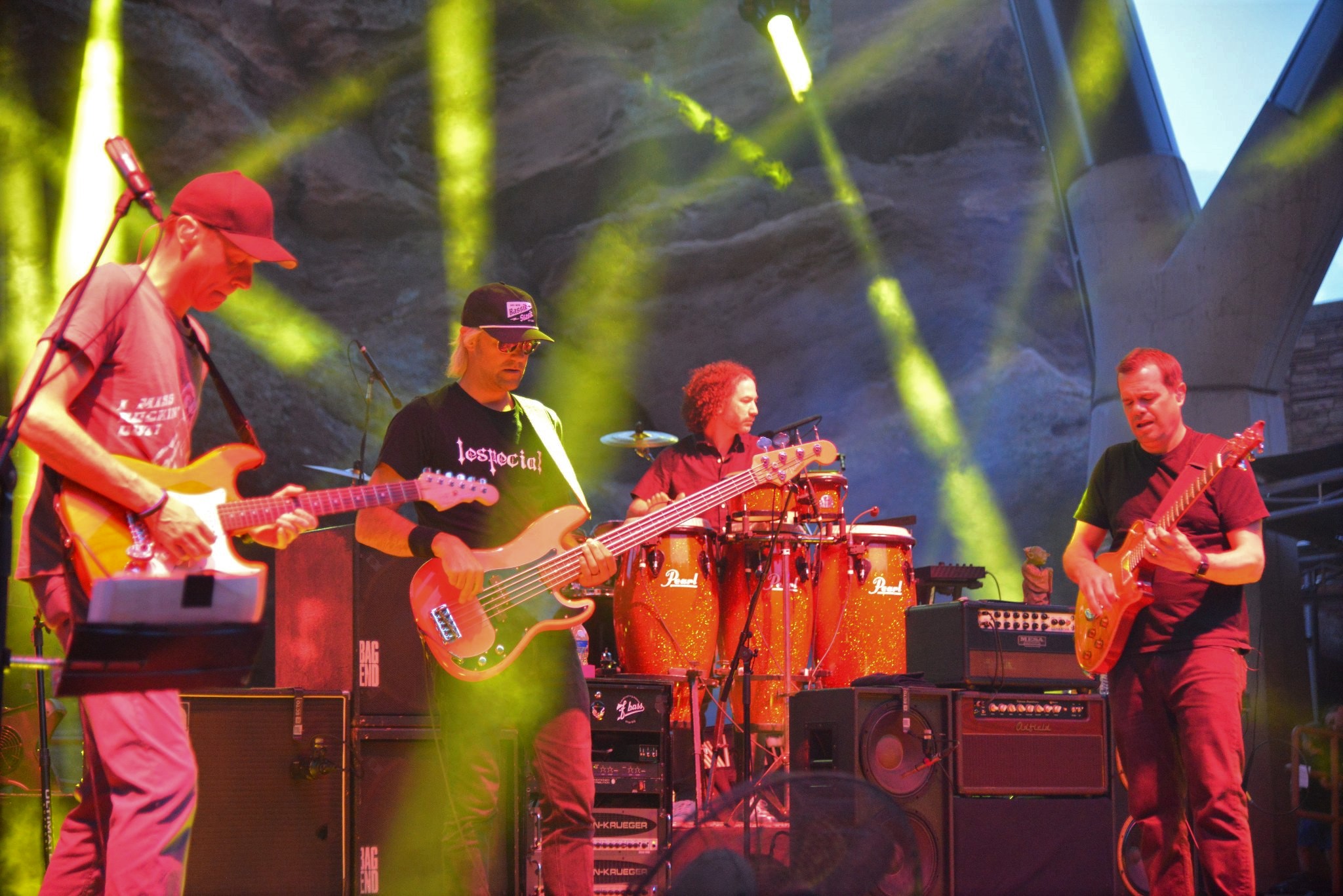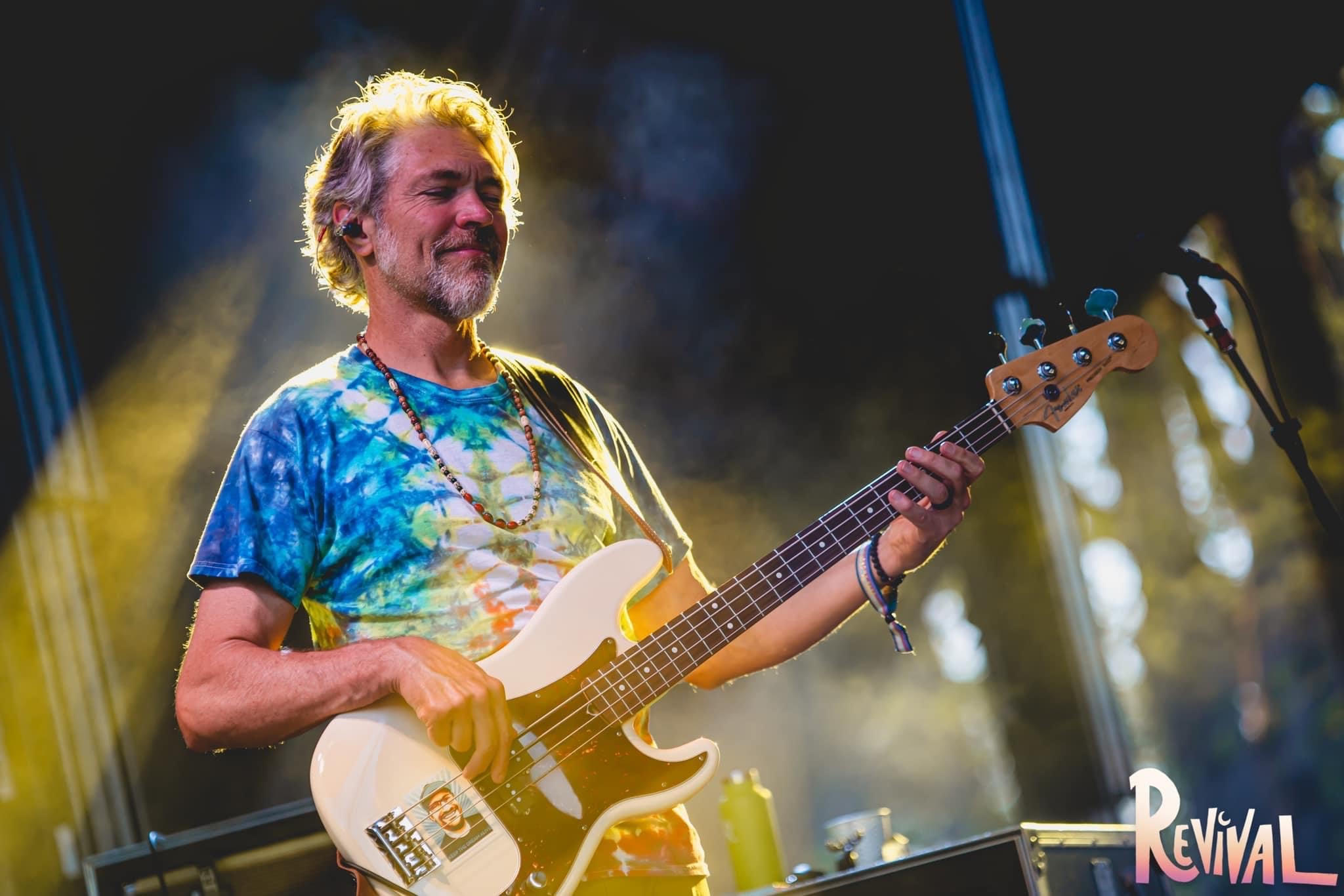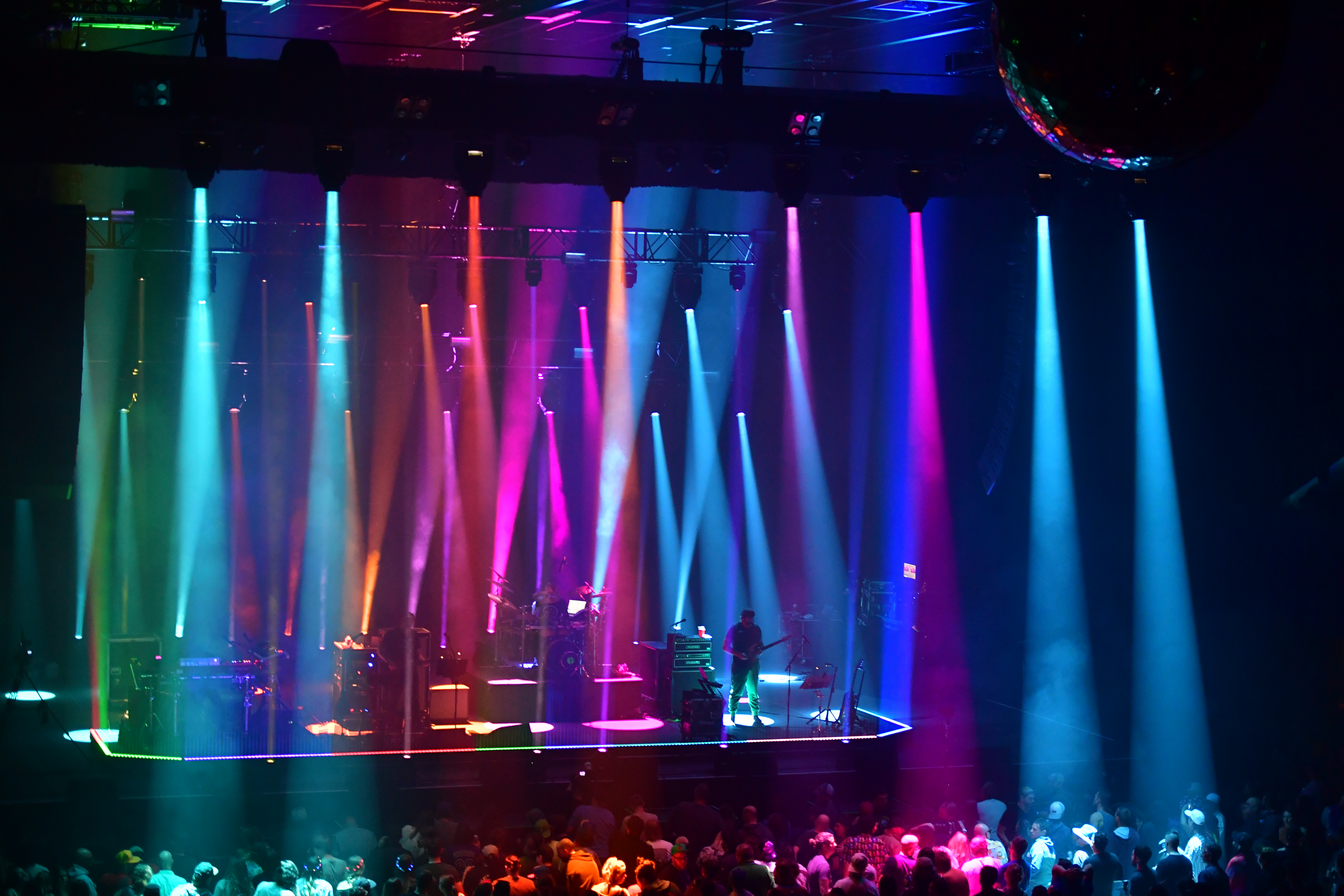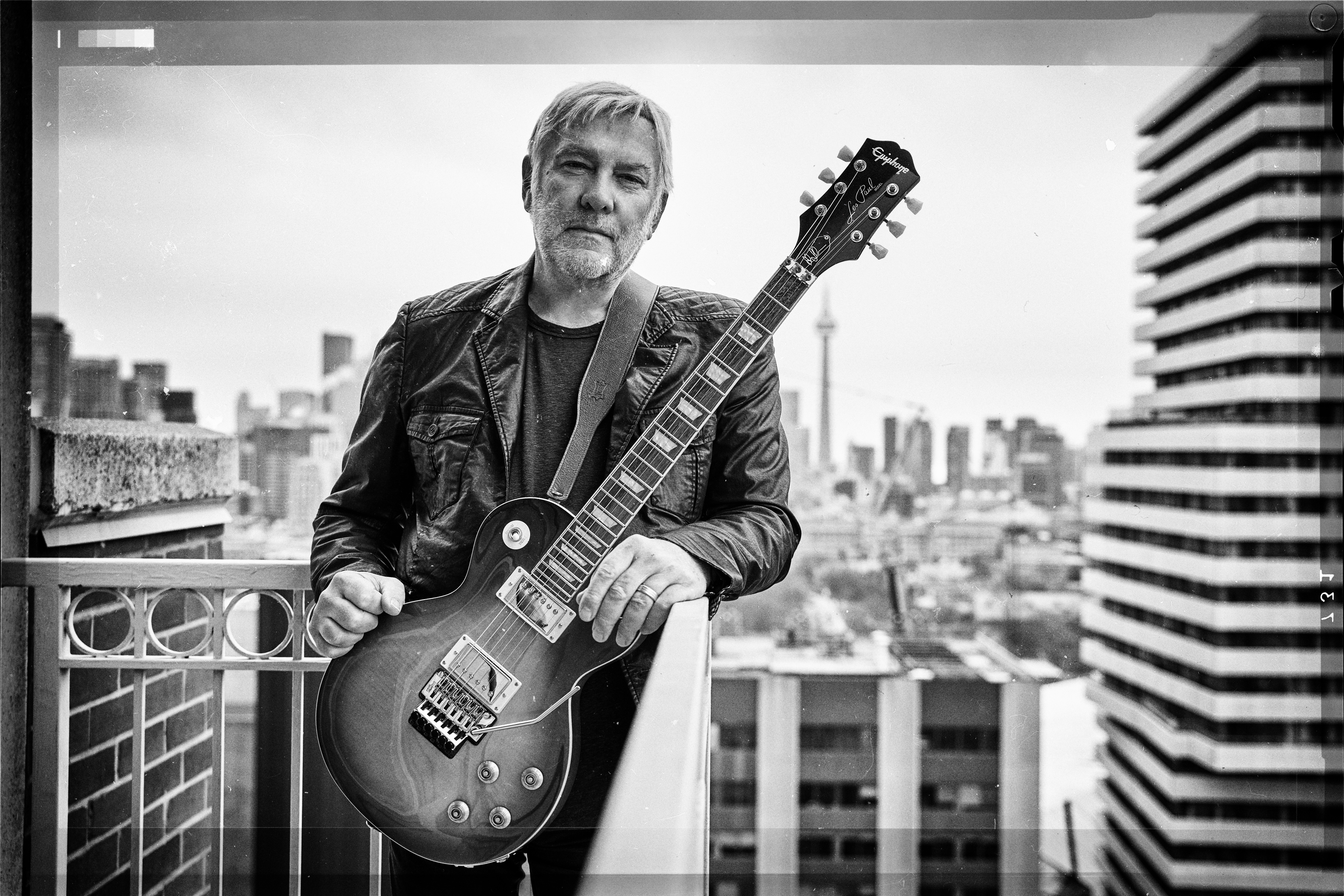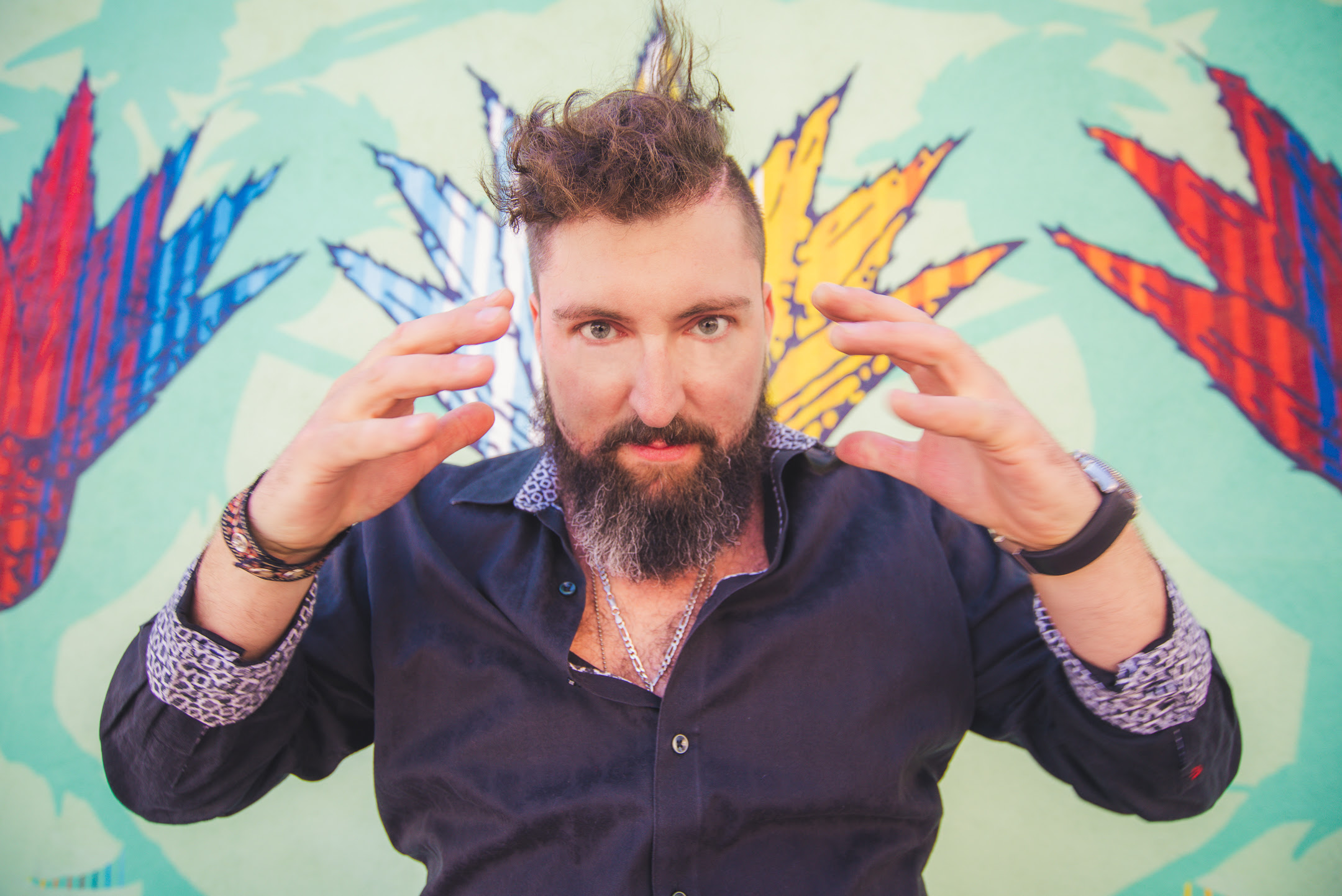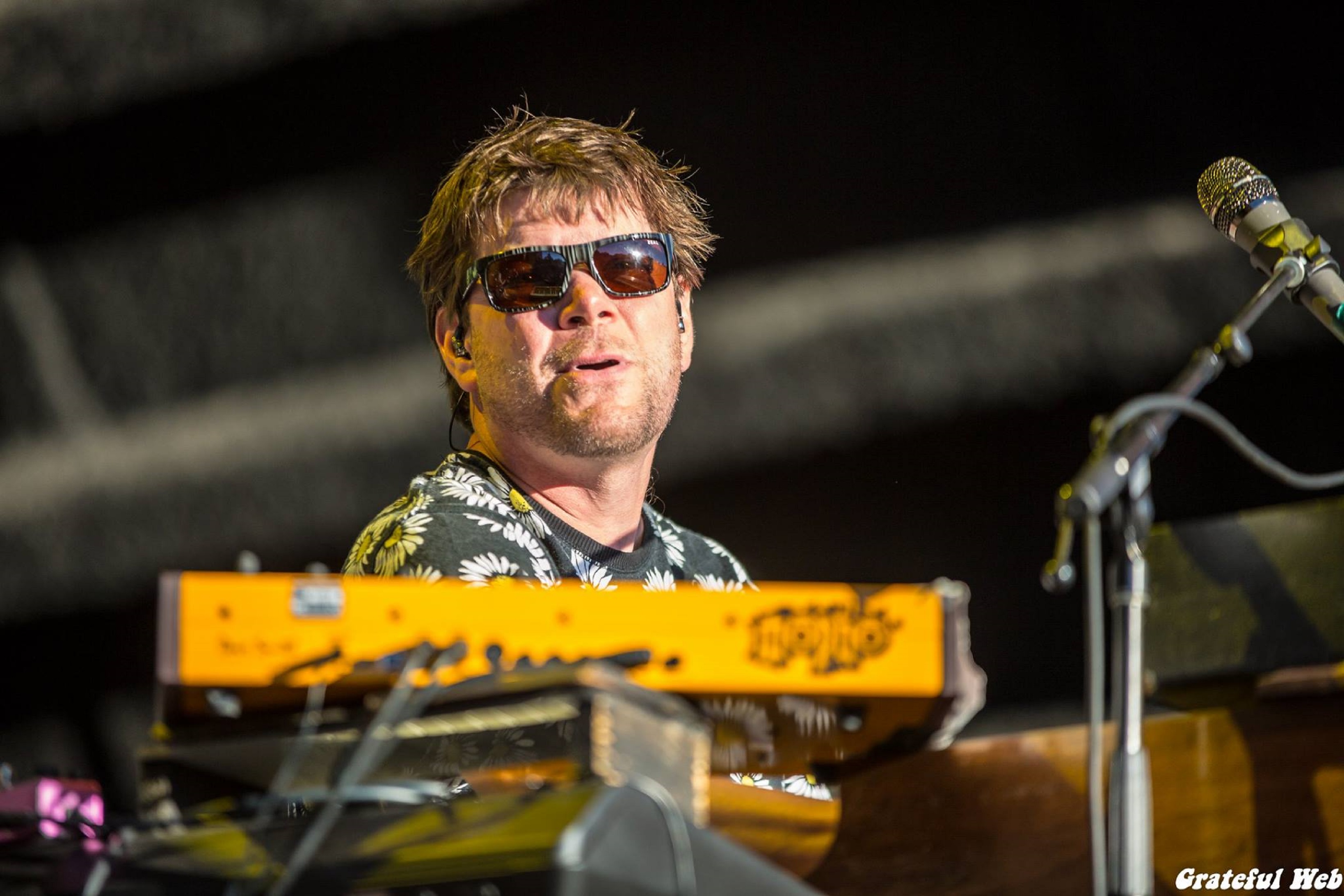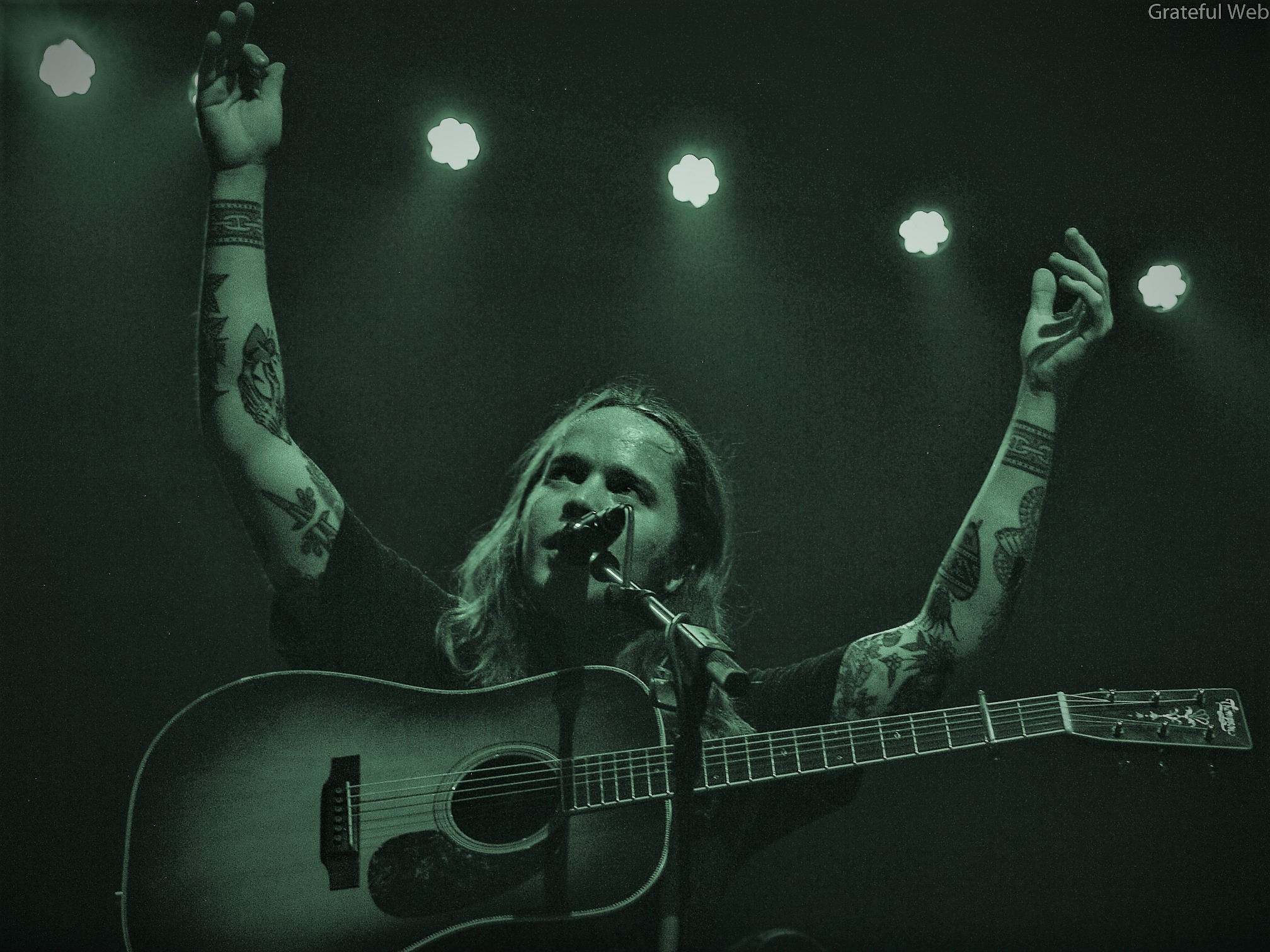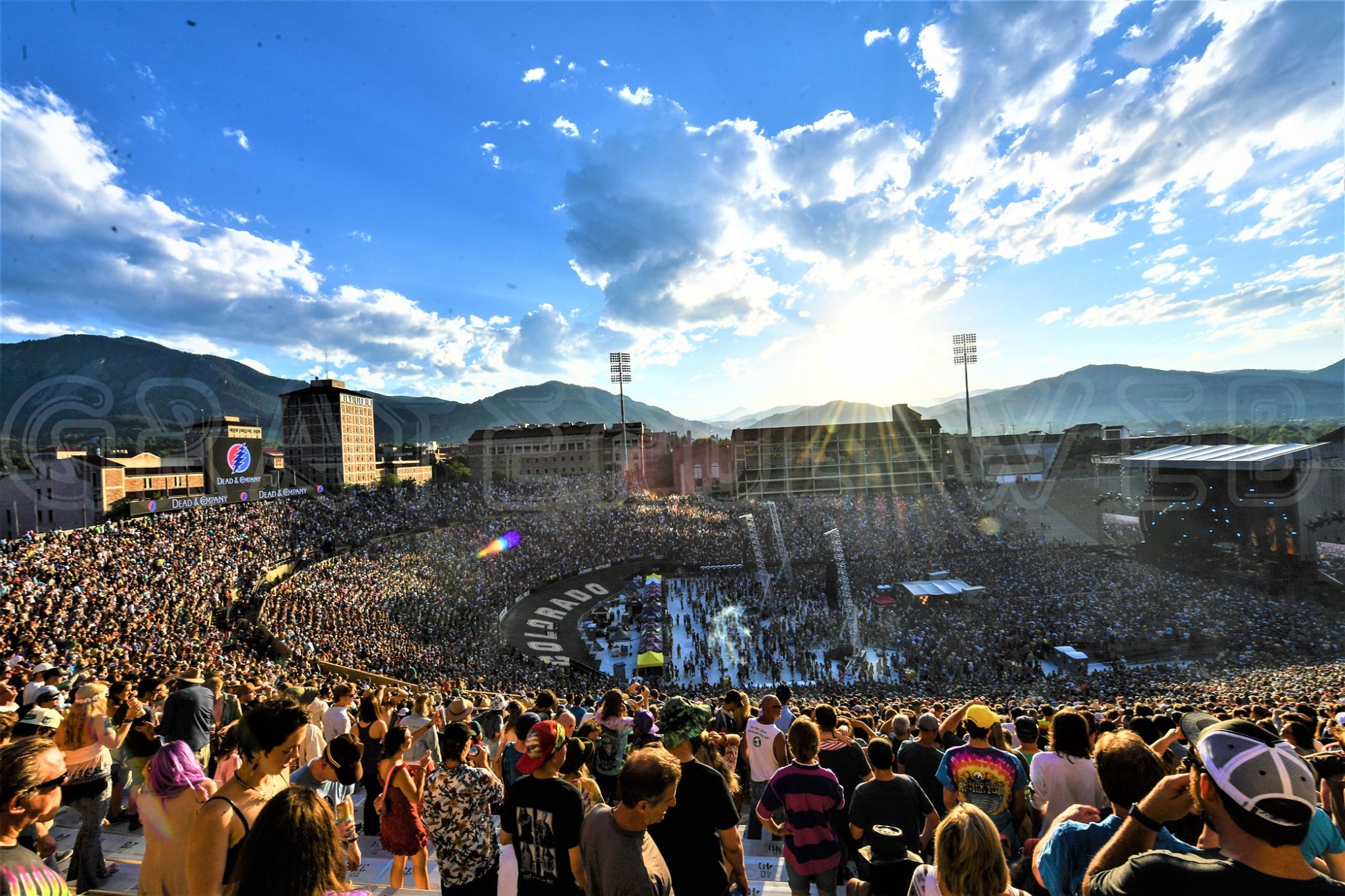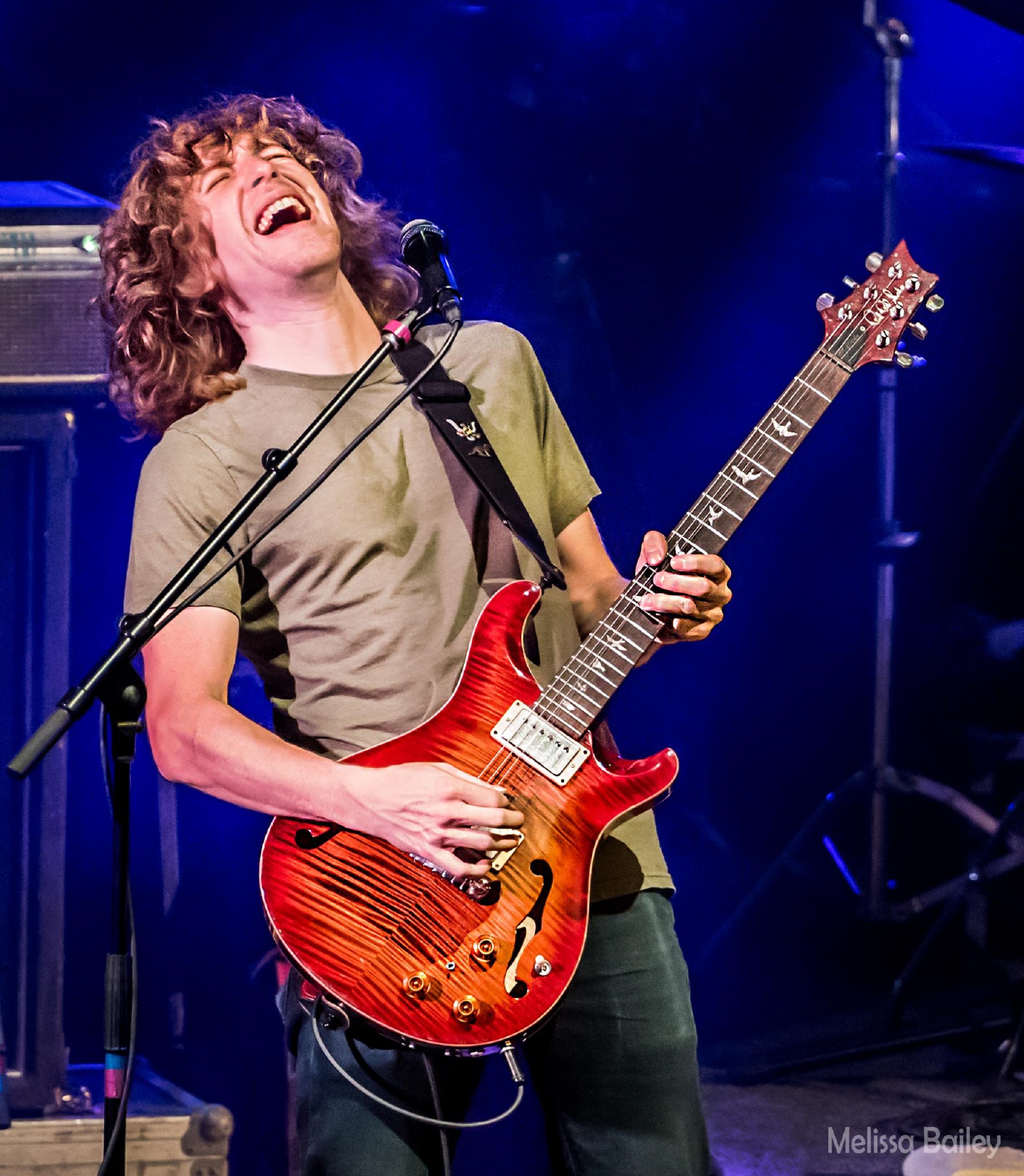An ever-changing visionary, Matisyahu has mastered the art of blending reggae, funk, hip-hop, and soul into a one-of-a-kind artistic experience. Currently touring in support of his 6th studio album Undercurrent, Matisyahu has brought his friend's Common Kings and Orphan along for the ride on the second leg of the Broken Crowns Tour. The Grammy-nominated artist was kind enough to sit down with the Grateful Web to discuss the current tour, the recording process and concepts behind Undercurrent, as well his wild ride of following, and eventually playing with, Phish frontman Trey Anastasio.
GW: What’s happening guys, my name Is Elliot with the Grateful Web, and today I’m here with singer, songwriter and Grammy-nominated artist Matisyahu, how you are doing today my man?
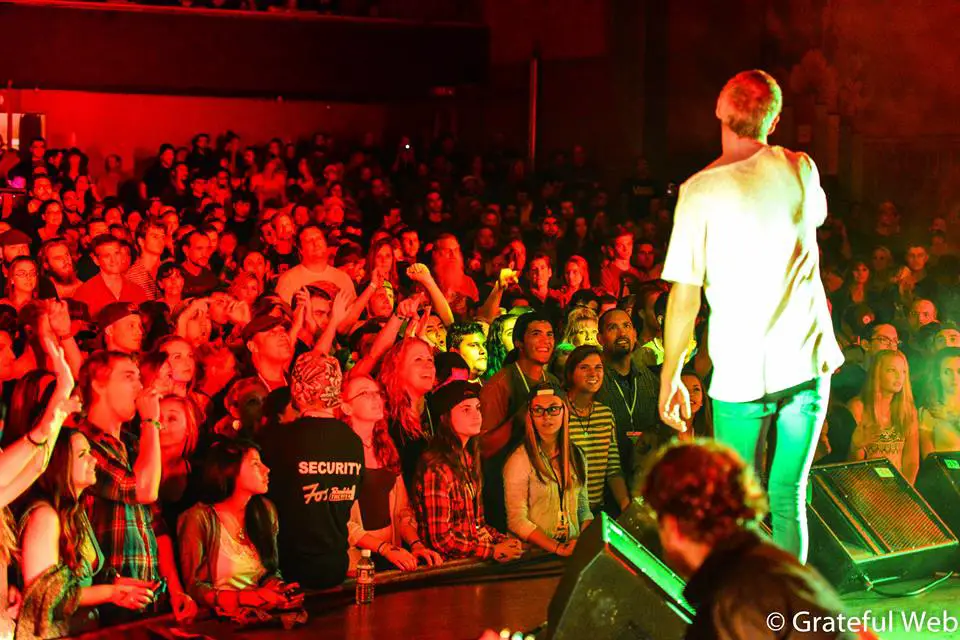
M: Doing great my friend, thanks for having me.
GW: So you just kicked off the second leg of The Broken Crowns Tour. You brought the homies Common Kings and the debut of Orphan with you as well. Tell me, how’s the tour been going so far, and what can fans expect from this current tour?
M: Well the Orphan guys, it’s their first time out on the road, and they’re a young band who come Hasidic background and families, but don’t necessarily identity with that as much anymore. They play a lot of instrumental music, sort of inspired by Matisyahu with the Dub Trio, so they write their own songs, and it has a hip-hop, rock vibe similar to Dub Trio. The Common Kings play for about 45 minutes, they’re a really up-tempo, hard-hitting reggae band with harmonies and they all have these beautiful voices. Then we come on and play a number of different selections from the catalogue, including the new album we just came out with called Undercurrent. We’re sticking with the improv-influenced style, blending sounds and genres, and night-to-night no setlists, just as organic as possible, but again the overall approach remains the same.
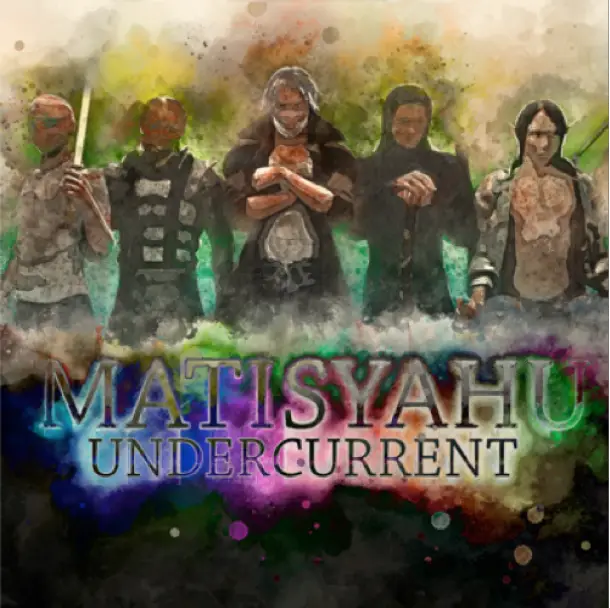
GW: That brings me to my next question, let’s chat about your most recent release Undercurrent. Your first self-produced album, no outside influences. As you mentioned earlier, you seem to be taking a more jam-heavy, improv-based approach this time around. Tell me about the recording process and what your mindset was going into this album.
M: Every record for me is just a different opportunity to touch on a different style of music. My first record, Shake off the Dust…Arise we wanted to make a roots-reggae album. Then we had Live at Stubbs which was our first real clear, clean version of what we can do live. Working with Bill Laswell on Youth, man to have that Dub thing going was great, and then with David Kahne in Light was much more centered around the songs themselves. I was working with a lot of different writers and artists at that time and really worked hard on crafting those particular songs. Spark Seeker was an opportunity to make more pop and hip-hop type records, more clean-cut with drums and digital synths and things like that. We took that record to Israel and added that whole Middle-Eastern flavor to it. Akeda was really my first chance to work in the studio with Stu from Dub Trio, and the two of us really worked hard on that album after playing music together plus touring for the past eight or nine years. I was going through this sort of breakthrough moment in my life, and he was right there with me on the tour bus. As I was going through all those things, we would just continue to work together, and I would say that album was really the first “in-house” record that we made without an outside producer, because I consider Stu really an extension of myself musically.
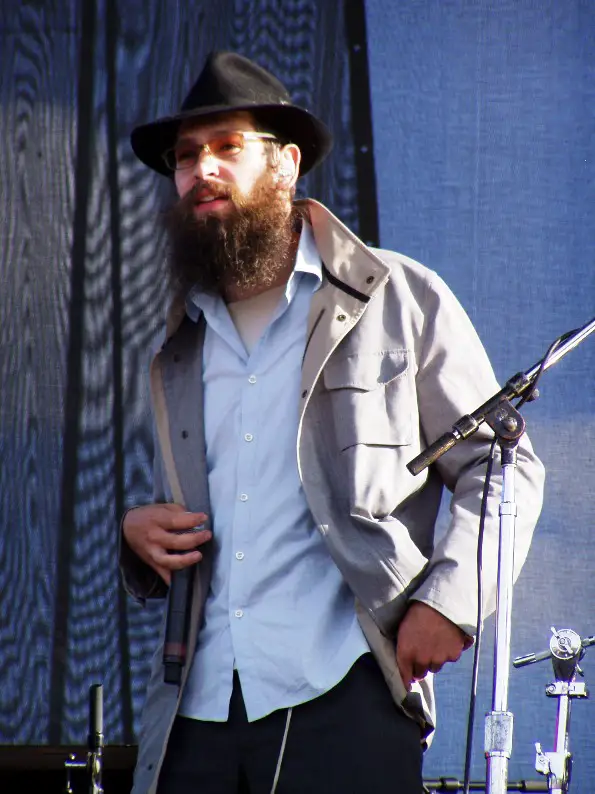
With this newest record Undercurrent, I kind of had a vision for the sound, and I wanted this live energy and improvisational touch to the new songs. So as opposed to writing songs, then recording and finding players to figure out how to translate it live, I took kind of the opposite approach. I said let’s find the players who can handle the sound and the vision where I want to take the music, let’s go out on tour and let’s use the old songs as jump-off points to start writing new songs via improvisation live. So we started jamming a lot during that tour, we would record that jam, and listen back to it as soon as the tour is over. Then we would start crafting those songs into compositions with multiple parts to them. From there we went straight into the studio and recorded for about ten days, laid down the entire instrumental pieces for the tracks, and for about the next week I layered vocals over the instrumentals. Now coming back onto tour with those songs it makes a lot of sense, it doesn’t need to retranslated or shifted in any way. Those songs are a representation of what we do spend most of our time doing, which is performing and being on stage.
GW: I wanted to talk briefly about your current backing band. Your current touring band consists of guitarist Aaron Dugan, bassist Stu Brooks, drummer Joe Tomino and keyboardist Big Yuki. How did you get to know these guys, and what elements they bring to the live performance?
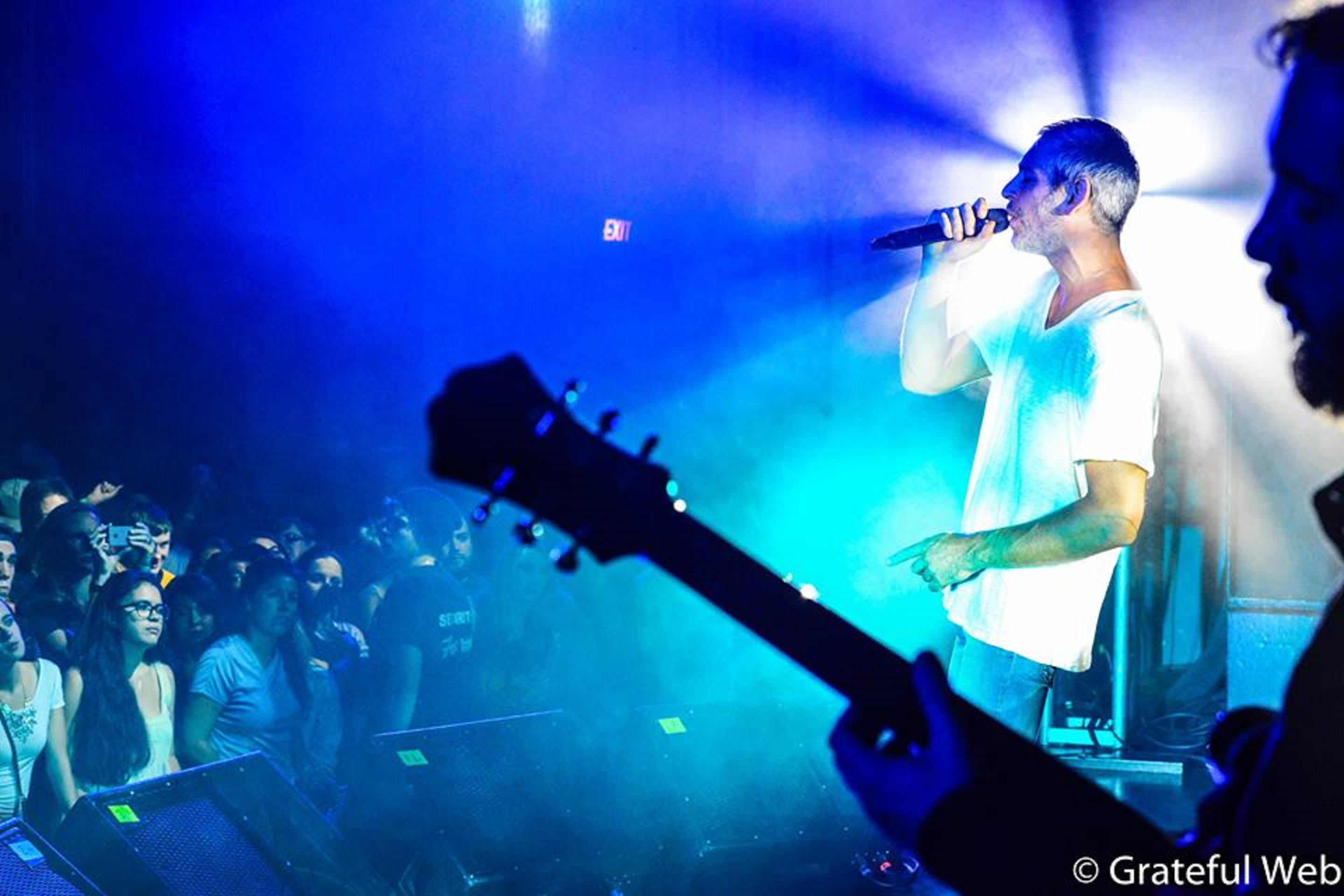
M: I’ll start with Aaron, we met in college, and I was playing in a bunch of different bands at the time. He went to Mannes School of Music – The New School, and I was in a liberal arts undergraduate writing program, and I was meeting a lot of different musicians and playing all sorts of different music. However when I became religious I went away for a couple of years, and when I came back I ran into Aaron at a Rosh Hashanah celebration in Williamsburg, and I had just gotten offered my first gig which was a menorah lighting in Union Square Park. So I asked him if he would play this celebration with me, and that was the beginning of Matisyahu.
As gigs started coming in, he helped me put together my first band, and he’s the most courageous musician I know. He’s always listening, and looking for ways to push the music in a new direction and responding to the music. He’s from Philadelphia, and he’s just got this gritty tone that is so real. I guess that’s the big thing about these guys are just their personalities, and how they let their personalities flow through their music. Aaron is just my homie, we’ve done a lot of shows where I just beatbox, and he plays, and the improv element with him is key. He doesn’t like repetition, so let’s say we are playing a jam that usually goes into a hip-hop jam or a reggae jam, he will look at it like yeah we can get a big reaction out of the crowd by playing it that way, but how can we do things differently, how can we take things into a new zone, which is very important to me. His background is jazz and rock, but he’s been playing reggae with me for fifteen years, so he’s got that under his belt.
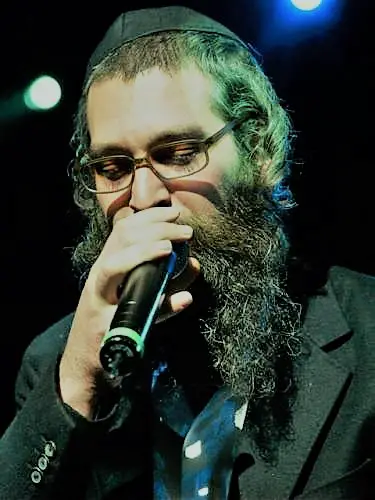
Then Stu and Joe from the Dub Trio, they’ve been with me for eight or nine years. There is no other rhythm section that can play dub and reggae quite like them. They are such a key piece of what I do musically, just that particular brand of dubby, swampy reggae music with an edge. That’s what I like, and not a lot of people understand that version of reggae music. They can play jazz, they can play funk, but they are really masters of their craft when it comes to the reggae rhythm.
With Big Yuki, he’s just a virtuoso keyboard player, just incredible; he’s an alien man. He did the new Tribe record, he did the new J-Cole record, so his playing is just unparalleled. I think he’s considered one of the five best jazz piano players alive today, right behind Herbie Hancock. He’s no joke; he’s a force. So to have all these different backgrounds and styles behind me, it’s just this creative force that allows me to do my thing night after night which is incredible.
GW: Undercurrent almost feels like a jazz album, in a sense that its very exploratory, very different, very spur of the moment. Were you going for more of a live performance, meets studio type of album?

M: From a conceptual place, it’s almost jazz music. The genre itself may not be, but the approach definitely is.
GW: You’ve got a signature beatboxing sound that comes alive on this album, specifically on the track “Driftin’.” When you beatbox, both live and in the studio, is there a game plan that comes with that, some sort of structure and base, or is that just you going with whatever feels right?
M: Beatboxing to me, it’s like some people use it as a party trick, like how fancy can they be. For me, it’s almost like a way to explain musical concepts to people. Like if I don’t know the correct terminology, I just do it with my mouth, and my body, and with space and time I use the beats to steer the jam in the direct I want it to go to. One of the things I learned from a band like Phish, is the dynamics of the drums, where the drums move quickly, but it’s not necessarily in the forefront like in reggae or hip-hop. It’s sort of a guiding and driving force, but it’s lower in volume. So if I ever feel like a jam is getting too swampy, or too stale, I will use the beatboxing to guide it into a new direction. Once that occurs, I can mess with the melody, mess with the tempo and the rhythm to steer the groove, so that’s how I use my mouth and my beatboxing during our jams, rather than just okay, here’s the beatbox solo.
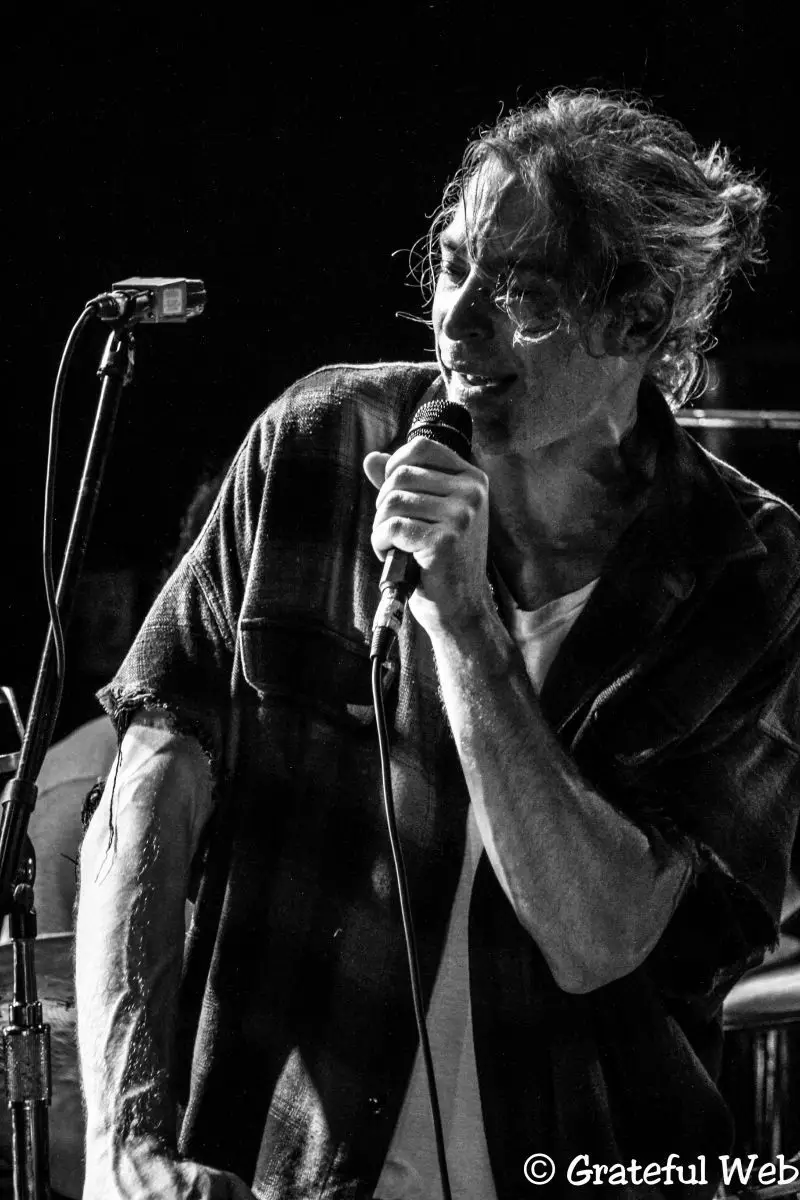
GW: You brought up the drumming and rhythm of bands like Phish and how that inspired you. As a kid who grew up following Phish around the country for years, what was it like sitting in with frontman Trey Anastasio at Bonnaroo in 2005, and how has Phish influenced your overall approach to music?
M: Growing up I didn’t study jazz music, and I didn’t listen to jazz music, so my whole concept and perspective of live improvisation comes from Phish. I had gone to some Grateful Dead shows, and my parents were Deadheads, but Phish was my band from my generation who taught me about the religiousness and holiness of how live music can be and how it can influence you. So that was my backdrop, even if the styles are different. Even now, you know I took a break for a while, but nowadays I listen to Phish a lot. I’ll go back and listen to the jams with a little more understanding of music, and how they create this environment and what these different elements are and I can incorporate those elements.
In terms of playing with Trey, it was so special for me because as a kid you know, leaving home and going on tour, and knowing all I want to do is experience this music. Running around, getting into shows and being crazy all the time was fun, but then really getting to a point in my life where I wanted to take it seriously. I went through a disciplined period of not doing drugs, not listening to music, just really studying religion. Then I came back into it, and one of the very first things that happened was this thing with Trey. It was almost like okay, you did this as a kid it was really pure and great, but a little insane, but you were able to make a sacrifice and focus on this music thing, you needed to pull back, and you did, and it almost felt like a reward for the discipline. Like God was like, “here you go,” and it was just beautiful.
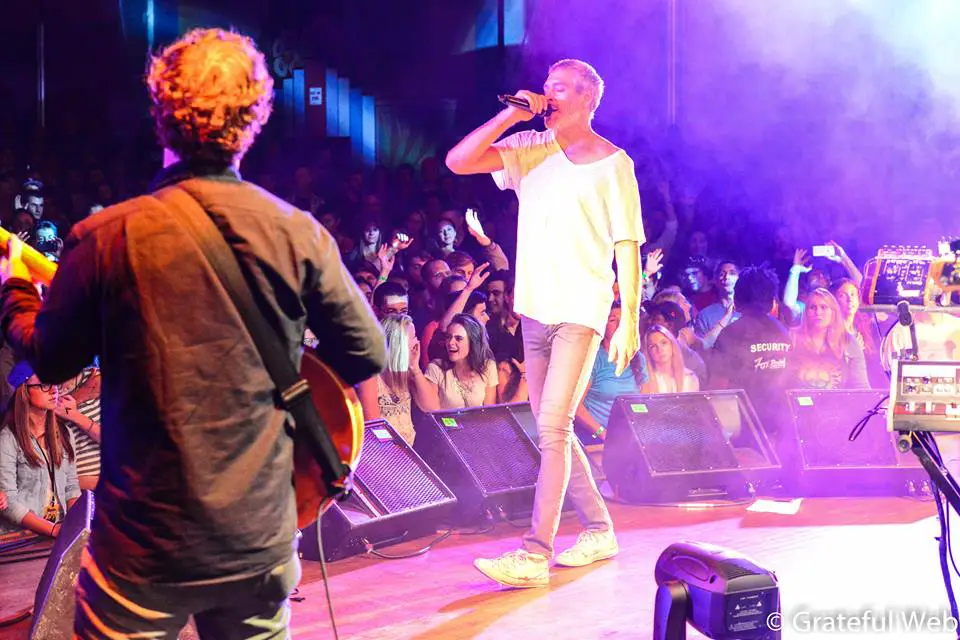
I’ve told this story before, I don’t know if you’ve heard it, but I went away for Shabbat, and when I came back my manager was like hey Trey is playing multiple nights on Saturday at Bonnaroo, and we’ve got you a meeting with him, so keep your phone on. He’s like, yeah he’s going to meet you in his trailer so be ready, how fast can you be back here? So I’m flying back to Bonnaroo with a rabbi going to meet my childhood hero, and it’s just crazy, and my manager is like just don’t ask to sit in, just meet him and let it be that. So, of course, the first thing I ask him is like, you’ve got to let me sit in with you man, and he actually already had Bo Bice from American Idol sitting in that night, so he said it wouldn’t work.
So I’m sitting outside his trailer, and side note the first song I ever sang live was “No woman, no cry” and for some reason, I just knew how to sing that song well. So I’m standing there, and out of the trailer pops Trey’s head, just bushy red hair, and glasses (laughs), and he’s like, “Do you know any Bob Marley songs?” So we’re in his trailer practicing “No Woman, No Cry,” with his band, all is good, so I leave a bit later. I get a call from my tour manager, and Trey had somehow gotten ahold of Live at Stubbs, and my manager is like, “They heard your music, and they dig it, they want to do a song off the record.” So I run back into the trailer, and now we’re practicing one of my songs, and it was fucking surreal.
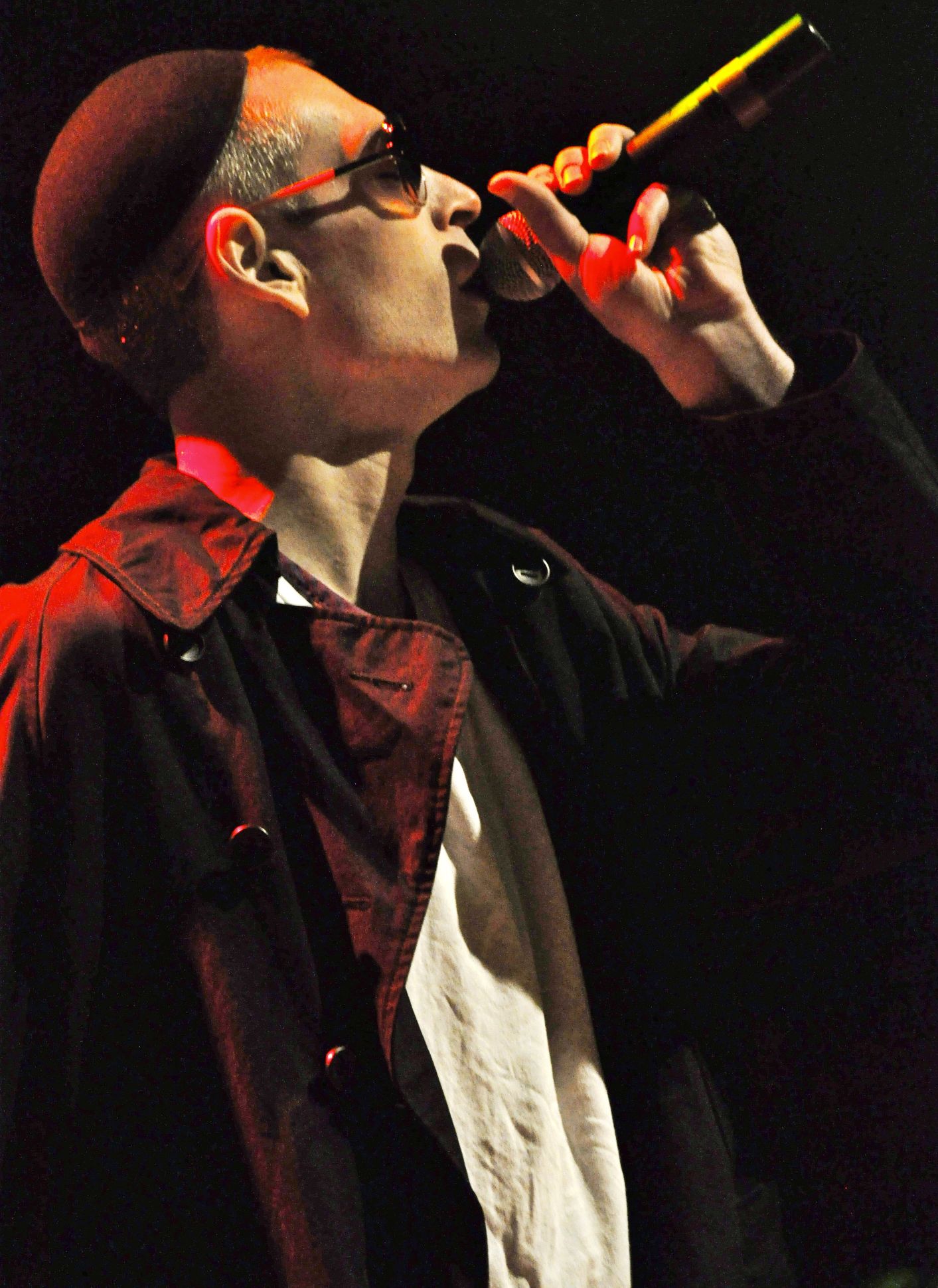
So we get up there, and up until this point I had never played in front of this many people, nothing even close, so this whole experience is just surreal to me. Mainstage, Saturday Night at Bonnaroo, Trey is right next to me; man words cannot even describe. The crazy thing is, like they forgot how to play the song! They forgot how to play the song! (laughs) We’re up there right, and everything is off, the rhythm and the melody, but eventually, we got it together, and it turned into this just epic moment. After the show, Trey pulled me aside and said it was a very interesting moment in his life, and this was right before the arrest and all of that stuff. So like for Trey, he had the American Idol on one side, and myself on the other, and I think for him it was a representation of like what two different sides of music can be. Like it can be something that feeds the ego, or something that can be given back. Something which is truly humble and pure.
GW: Great stuff. Few more for you here, and we will let you know. Roots question here, you’ve spent a lot of time over the past years with artists like Wookiefoot, Trevor Hall, and Nahko, we’ve seen a lot of collaborations come to fruition. Tell me about your relationship with those guys, how you came to know each other, and what their influence has been like on you.
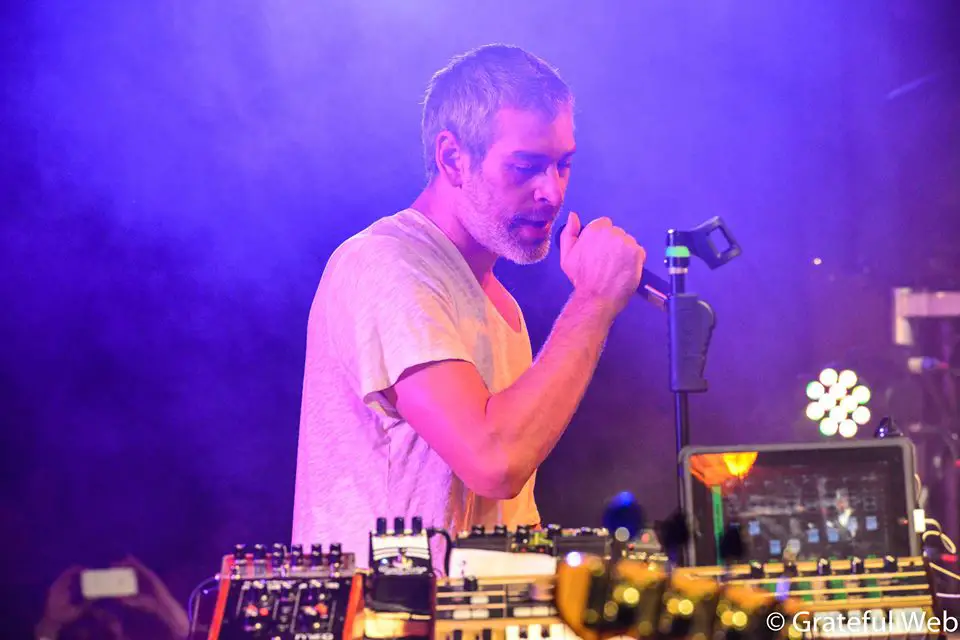
M: I got to know Wookiefoot in Bend, Oregon when I was 18 years old. I started playing music locally in coffee shops and whatnot, and I met them somehow, and they had just bought a recording studio and were starting this thing called Wookiefoot. They would come to my shows and check it out which was cool, but they were older, probably ten to fifteen years older than me. They became real older brothers to me; we would hang out and play music together, trip on mushrooms in the woods together and have these philosophical conversations, they would come to my shows, they were just real supportive.
I have this great photo of me graduating from this one-year rehab stint that I did in Bend, and the Wookiefoot guys show up in these fucking outrageous costumes, just like full on Wookiefoot with these insane hats and face paint, just Mark, and JoJo looking ridiculous. At this time too, I was wondering if I should keep playing shows with my band, or just go back to New York and figure it out, and Mark was the one who I really trusted, and he advised me to go back to New York which turned out to be a great decision.
We stayed in touch for a while, and actually, at one point I took a motorcycle ride out to their house in Minneapolis and recorded my first three songs ever which nobody has anymore. One of them was just this looped Rocky tune that Mark and I worked on in his office, my grandfather gave me like $300 to record it. One time I played a gig through Volkswagon at the Detroit Auto Show, and we would just play that song every hour on the hour. So I bought a motorcycle and drove out to Minneapolis to meet Mark and we recorded my first demo, and I would go up from time to time and meet those guys, but as my career sort of popped off I didn’t make it up as much, but we’ve stayed good friends all these years.
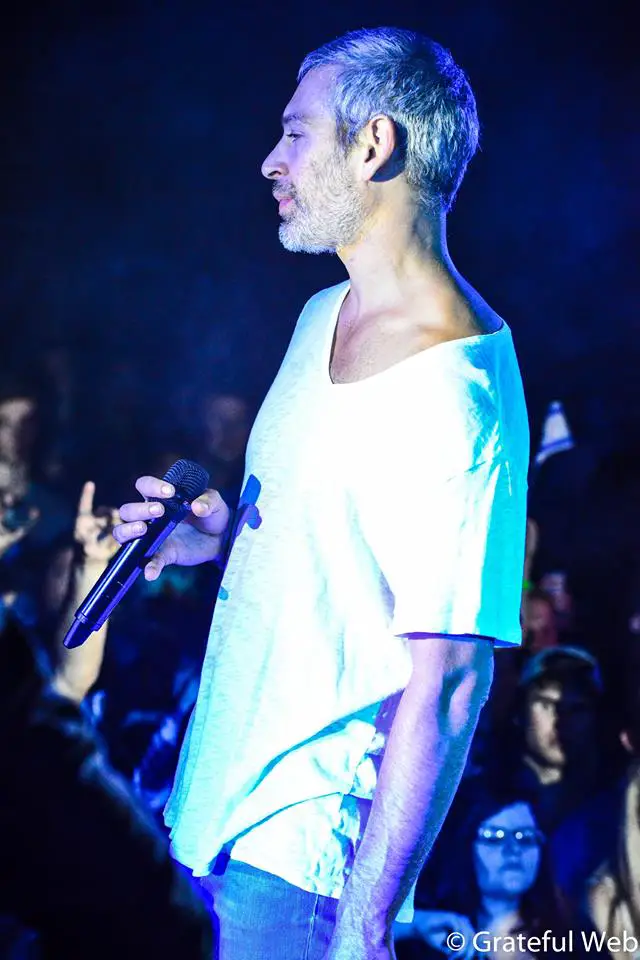
Trevor, I first saw and met at Sundance, he was probably 16 years old at the time. He was playing “Lime Tree” in front of like 15 people at an art gallery, and I just fell in love with him man. That’s what happens with Trevor. For several years I had him out on tour with me, he would ride on the bus with us, ride in the RV with me, we had a lot of really cool experiences throughout the years. Nahko I met up through the Wookiefoot family, and they don’t even really know this yet, but I want to put together a tour with Nahko and Trevor, maybe even the Wookiefoot guys there, I think that would be incredible.
GW: Final question - You, more so than maybe any currently touring artist, seem to change, seem to evolve and constantly be moving in a new direction. Sub-genres from soul to funk, reggae and dub to hip-hop and beyond. What’s next for Matisyahu and what can fans expect to see in the future?
M: For now, I still feel like our live show is developing. I feel like we are in the early stages of what we are capable of doing live. Me, in terms of being a performer, and for the whole show in general. I just feel like I have a lot of ideas, and for this band, to see what we’re capable of. This particular band has only been playing together for a couple of years, so it takes some time. Every night when I get on stage I feel like there is an improvement, there are new worlds opening up, and I’m thinking I can do new things. For example now, when I’m rapping or when I’m singing I feel this unification between myself, my body, the rhythm, the band in a whole new way than I ever have, and it’s a game changer. I’m still fascinated by music, and I’m just going to keep touring, and keeping taking my time at home, raising my kids as much as I can be home. I don’t know what the future will look like, but I do know that I’ve been able to form relationships with people who are extremely talented, and I just feel blessed to have these moments.
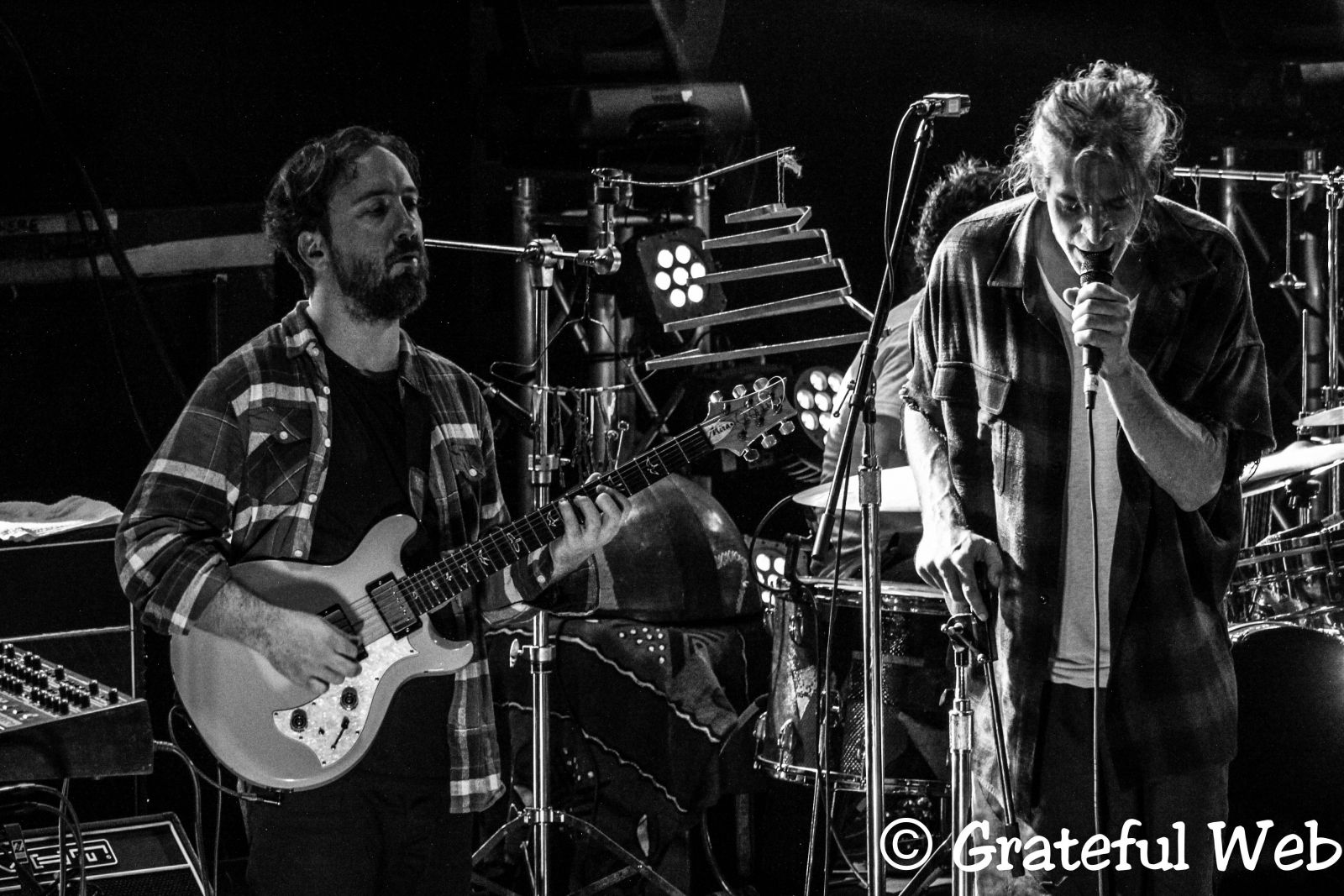
GW: You’ve been a wonderful guest, thank you for your passion and insight. We look forward to this coming tour, and we can’t wait to see what happens next.
M: Awesome, thanks, Elliot. Take care.







